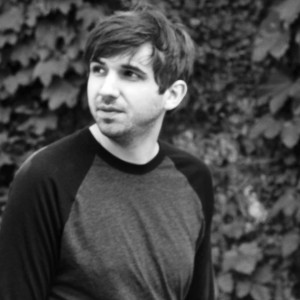For years most of my fiction has been about characters in bands, usually in the punk and hardcore scene. It started with the whole “write what you know” thing. Before I started to write with any sort of regularity, I played in three different bands, lived in a punk house, ran a small label, recorded bands on the weekend, had weekly practices, and was on tour for a good chunk of the year. What did I know? I knew what it was like to dumpster dive bread from a Subway and eat lettuce sandwiches for days. I knew what it was like to have friends who slept in diapers because they knew they’d blackout and piss themselves. I knew what it was like to sleep in an apartment with a brown recluse infestation. I knew what it was like when the atmosphere of a venue shifted because a skinhead entered, his presence changing the molecular energy until no one could breathe. I knew what it was like to be the only sober person at a house show.
So what started as me just chronicling the sorts of stories that I saw playing out around me, ended up playing a larger role in my approach to the types of characters I create. I want to capture a type of person that is passionate. I’ve read enough stories where characters with little to no passion float through a meandering plot. That sort of writing is not for me. I found that when I wrote characters who have passion, that were willing to eat from the garbage in order to afford to play music for strangers, that my characters had a certain volatility, the same found in the music scene my characters come from. Writing about characters that devote their lives to a subculture made it so I never worried about a character having murky motivation because music characterized.
Because music, in my experience, is more than art. Subcultures bubble up around a genre that outlive the music by decades. Music is why a guy will buy a standup bass and roll a pack of cigarettes into the sleeve of his tee shirt. Music is why a middle-schooler dyes her hair with Kool-Aid without her parents’ permission. Music is why I quit my jobs, got in a van, sometimes lost money, and through it all believed that not only was the tour worthwhile, but that it was important. Music is why most days I wear black-band shirts that my wife says makes me look like a nineteen-year-old.
Music is more than art. It’s an aesthetic, a lens to interpret the world. Almost all of the people I’ve met on tour have one thing in common: art, politics, and the personal are all entangled. They are the type of people who play infinite feedback loops through a PA at four in the morning, and, when you try to tell them to keep quiet some reason respond, with, “I threw a forty at a Hummer. Fuck you.” They are the type of people who refuse to play stages, instead playing all-ages, safe spaces on the floor encircled by the crowd. They are the type of people who dropped out or gave up meat or tried heroin or got sober or attempted suicide or lost their faith or found faith or moved into a commune or tattooed song lyrics on their throat because one specific song hit them so hard that life would never be the same.
I don’t write about music anymore because of the “write what you know” adage. I write about music because I want to write about characters that give a shit.
And I think that on some level, music reveals more about a person than what they do for a living. If it were up to me, I think that a character’s taste in music should be one of the starting questions in character building exercise. I can learn more about a person by their iTunes than I can from a list of their social class, religion, jobs, and habits. If a character stopped listening to their favorite artist because of a scandal, or if a character loves racist black metal bands while insisting it is only for the music, or if a character hasn’t bought a record that was recorded after the 70’s, or even if a character listens to “everything but rap and country,” then I think you can stop the character exercise because you have all the information you need to sit down and start writing. Because embedded in each of those examples is not only an aesthetic in sound, but other insights into the character’s world view. Of course, not every story needs a soundtrack or needs references to song lyrics, yet a character’s musical preference off-the-page can reverberate throughout a character’s decisions, narrative voice, and view of the world in the same way that their off-the-page spiritual or political views do.
Ultimately, how you arrive at your characters doesn’t matter all that much as long as they are vivid, surprising, and knowable. Because, in the end, our music says a lot about us, but not everything. Yet I’ve found that in building a character from the ground up that music fills in just enough gaps for me to get writing while also having plenty to discover.
 Brendan Stephens graduated with his MFA in Fiction from the University of Central Florida in May. In the fall, he will be attending the University of Houston as a PhD student. His work has appeared in Carolina Quarterly, Into the Void Magazine, Little Patuxent Review, and elsewhere.
Brendan Stephens graduated with his MFA in Fiction from the University of Central Florida in May. In the fall, he will be attending the University of Houston as a PhD student. His work has appeared in Carolina Quarterly, Into the Void Magazine, Little Patuxent Review, and elsewhere.
Brendan’s short story “Eliot” appears in Black Fox Issue 13.



